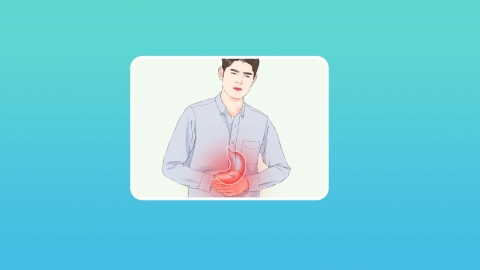What are the symptoms of stomach bloating?
Under normal circumstances, the main symptoms of gastric distension include a feeling of fullness in the upper abdomen, belching, nausea, abdominal bloating and pain, and reduced appetite. If discomfort occurs, it is recommended to seek timely medical consultation and treatment at a qualified hospital. Detailed explanations are as follows:
1. A feeling of fullness in the upper abdomen
Accumulation of gas in the stomach or slow digestion of food may increase gastric pressure, causing a distinct sensation of fullness in the upper abdomen. Patients often feel tightness in the upper abdomen and may experience bloating and discomfort even after consuming small amounts of food.

2. Belching
When excessive gas in the stomach cannot be expelled smoothly, it may escape upward through the esophagus, causing belching. Patients may experience frequent belching, sometimes accompanied by a slight taste of undigested food.
3. Nausea
Gastric distension may stretch the stomach wall or disrupt gastrointestinal motility, stimulating gastrointestinal nerves and inducing a feeling of nausea. Some patients may only experience nausea, while others may develop vomiting in severe cases.
4. Abdominal bloating and pain
Accumulation of gas and food in the stomach may exert pressure on the stomach wall. Simultaneously, abnormal gastrointestinal motility may cause gastric spasms, leading to bloating and pain. The severity of pain varies among individuals and may manifest as dull or distending pain. In some patients, the pain may be slightly relieved after belching.
5. Reduced appetite
Persistent feelings of fullness and discomfort in the stomach may suppress the normal desire to eat, resulting in reduced appetite. Patients often report a lack of hunger and a significant decrease in food intake.
In addition, some patients may also experience additional symptoms such as gurgling sounds in the abdomen and difficulty with bowel movements. If any of the above symptoms are present, dietary adjustments may help, such as reducing consumption of gas-producing foods like beans and onions. When necessary, medical consultation is advised to determine the underlying cause and receive appropriate treatment.







